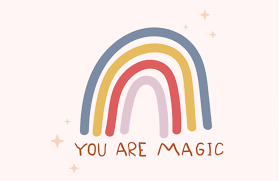What’s really helpful when dealing with stress?
The oxford dictionary defines avoidance as to “keep away from or stop oneself from doing (something)”. People avoid quite a lot! We avoid our feelings, thoughts, and circumstances that feel too uncomfortable. What’s the last experience/situation/person that you avoided? I want you to bring that memory to your mind while reading this article.
Why did you avoid this moment? Chances are you felt overwhelmed with hurtful emotion(s). This experience was causing you some spectrum of pain that was no bueno. We are meant to survive and adapt. So how do we emotionally survive distressing experiences? We shut down and avoid it. It’s called emotional numbness and it makes sense through a very, very primal lens. It’s emotional survival at its finest. And I can’t blame you. Just like I can’t blame myself for my avoidant behaviors. We are just all doing the best that we can every day.
If there’s pain we will figure out how not to be in pain. We have pain killers, drugs, alcohol, social media, Netflix, Hulu and music.

And if you’re really lucky, you have money…enough to travel the world and go on shopping sprees. All of these are very successful coping mechanisms but they work temporarily. They are all numbing our emotional pain.
But what if I told you there was another way to handle distressing emotions? What if I told you there was a distinct difference between avoidance and distraction? The Oxford dictionary defines distraction as “to divert one’s attention from something worrying or unpleasant by doing something different or more pleasurable”. With distraction, there is the conscious decision to reset from overwhelming emotions but then return to the discomfort for resolution. That’s the rub! Reroute but always steer towards the destination. So what does this look like in real life?
Here are a few common examples you might have experienced and the difference between avoidance and distraction:
- When you and your partner are having emotionally intense conversations, you can become very anxious about being vulnerable. When topics become intimate, you think a mile a minute about what to say, what they will think of what you’re saying and how they will respond.
- Avoidance- You shut down in the conversation. You give very minimal information about yourself and focus on their opinions, needs and wants. Or you might become physical/sexual in order to deviate from an emotionally intimate conversation.
- Distraction- Acknowledge that you’re feeling really uncomfortable, and tell your partner that you’re struggling and need to take a break. You go outside, call your friend for a pep talk. Once you’re feeling more stable, go back to your partner and disclose thoughts and feelings to them.

- You get really irritated when your sister is being inconsiderate. They focus on their opinion/needs and will talk over you.
- Avoidance- tune your sister out and shut down. You’re disconnected from your body and what’s happening to yourself. It’s like you’re not even there. It feels like you’re watching a movie. Or you might just walk away from the situation. You might decide to ignore her bad behavior and go on with your errands and the rest of your day.
- Distraction- You tell your sister that you’re feeling irritated but need to take a moment to yourself. You leave the room and practice box breathing for 6 cycles or more depending on how worked up you are. After you feel more grounded, you return and voice your feelings to your sister in a neutral manner.
- You don’t like going into social situations where you don’t know many people. It makes you uncomfortable. How do you approach them? What do you talk about? What if it’s weird and we don’t share the same interests?
- Avoidance- Whelp. With this one, it could be easy. You just don’t go out. Or if you do go out, you drink to become sociable or stick in the corner where you feel safe.
- Distraction- If you’re into fragrance, try wearing a scented oil that you find calming. You can also store this oil in a travel friendly bottle and put it in your pocket/bag so that you can sniff it on the go. Sniff the oil while using affirmations like “I am worthy of being loved”, “I really like myself and what I have to offer people” to balance the criticism that you might be telling yourself.

- You don’t like when your friend is late without giving any notice. You’re standing where you’re supposed to meet by yourself with no word from them. You’re inferitorated.
- Avoidance- you don’t say anything about their lateness but spend the rest of the evening sulking, being annoyed and possibly passive aggressive towards your friend.
- Distraction- Try and distract yourself with your surroundings. Can you smell anything in particular? What do you hear? Focus on your senses for a couple of minutes while you breathe. Once you feel calmer, tell your friend how you feel when your friend is late. Start with “ I feel…..when you do……”.
The first step is to understand how you feel. Secondly, why do you feel that way. Thirdly, (and this is the most IMPORTANT STEP) give yourself a quick out until you can feel calm enough to voice your perspective in a way that the other person can receive what you say. Usually when we talk from a place of feeling overwhelmed, we can’t always communicate effectively; that’s normal!
Now that you’re aware of what avoidance and distraction look like, I invite you to create your own plan for how to distract yourself rather than avoiding. What are the steps for creating a distraction plan?
- Step 1- identify what emotion you want to focus on. Do you want to focus on your anger, anxiety or something else?
- Step 2- Identify triggers to that emotion. What people/places/situations cause you to feel that feeling? Make a list of as many of your triggers
- Step 3- Identify a distractible action. You want something that can be easily accessible, done at any place and won’t take too long for you to complete. Your plan should include activities that you can do and don’t need anyone else for.
- Step 4- PRACTICE PRACTICE PRACTICE!
If you have any questions, comments or thoughts, I’d love to hear from you. If you want more information or want to work with me, send me a message.
Be kind to yourself and allow for space and grace!
Alexis





One Response
Oww, awesome this content, thanks for this